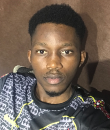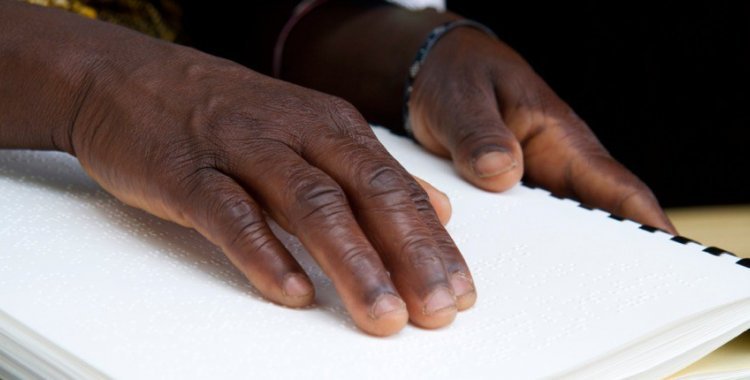Angola has been going through a process of social construction since the proclamation of its independence on November 11, 1975 and after the end of the civil war in 2002. However, the implementation of public policies aimed at education in general is still a challenge for the government. The fight for social equality has been guaranteeing a priori the right to education for all, encouraging the promotion of inclusion with a focus on total literacy of the population.
Regarding the inclusive perspective, the fight for the construction of a just society has been triggering several reflections on the subject, considering that the Angolan population is made up mostly of young people and children who need access to education. In the educational context, inclusion is seen as the "process through which educational institutions adapt to be able to include people with disabilities in their environments and, at the same time, they prepare to assume their roles in these environments" (Sassaki, 1999 apud CAMARGO; NARDI, 2007, p.379).
In the early 1990s, Angola, in partnership with some member countries of the Portuguese Language Countries (CPLP) community, such as Brazil and Mozambique, began to develop educational policies aimed at people with disabilities, that is, people with difficulties in attending regular school with with the aim of assisting them, satisfying their needs in terms of schooling and reducing the illiteracy rate, which at the time was very high. (CHAMBAL, RAFANTE, SELINGARDI 2015, p. 8).
However, it is clear that the partnerships established between the three countries with regard to educational policies aimed at specifically deaf people with disabilities, only Brazil made a significant leap in terms of the inclusion of these students in Higher Education compared to Angola for example. From 2003 to 2005, Brazil recorded an increase from 665 to 2,428 deaf students who entered higher education at public and private institutions (BRASIL, 2006). Data that show an important advance on the accessibility of these students in Higher Education. On the other hand, what is noticeable in Angolan public and private universities is the absence of educational policies aimed at ensuring these individuals' access to education. It is observed that the concept of education for all is not yet an Angolan reality, because although it is written on paper, the deaf in Angola until now represent a significant minority in terms of access to education.
The socioeconomic problems that the country is going through, self-exclusion, prejudice and among other factors, have contributed to what is the greatest adversity faced by the deaf community in the country. The school is characterized by the main means of socialization between individuals, since it guarantees the students' learning and knowledge, developing their cultural and social concepts. The reflection of a university student is due to the experiences lived in elementary and high school for this reason, it is necessary to work the base to reflect the top.
The implementation of sign language teaching outside the context of special schools, that is, in primary and secondary education, is very important and necessary since it develops the linguistic and communicative skills of students and teachers, in order to guarantee an inclusive educational improvement. This action prepares both deaf and hearing people for future interactions, valuing differences and critically reflecting on the deaf view from a clinical perspective.
The university context is challenging for all young people, problems adapting to academic life and the obligations it imposes often lead to failure and dropout. In order to be able to assimilate new information and new knowledge, they need to overcome the failures of the previous school trajectory, such as language deficiencies, inadequate study conditions, lack of logical skills, reading comprehension problems and difficulty in producing texts (Sampaio , Santos, 2002). However, linguistic restrictions make this challenge even greater for the deaf in the university context, especially when there are no public policies aimed at inclusive education, which has been constantly reflected at all educational levels, as is the case in Angola.
According to Goffredo (2004), to meet the special educational needs of young deaf people, the first step is to ensure their admission to university through the entrance exam. However, what can be noticed about the entrance exams for access to Angolan public higher education is that they are not designed for accessibility to people from the deaf community. The lack of an interpreter translator who works in the communicative relations between teachers and students and in the learning process, as they have a central role in the formation and integration of these students, the lack of organized strategies, adjustments and possible adaptations within the school that aim to ensure these students trigger several problems in the Angolan inclusive aspect.
How can we classify inclusive education? According to Omete (2016), quality education with all the necessary resources for full use by all students, including those with disabilities, is one of the ingredients to characterize university education as inclusive, that is, inclusive education guarantees the integration between subjects. Thus, it could be said that integration requires not only the ability to perform academic activities, but also to be involved with colleagues, professors and the environment. Both are fundamental in the first years of higher education to improve the chances of success. (Diniz, Almeida, 2005; Ferreira, Almeida, Soares, 2001). Once they enter Higher Education, it is recommended to create a cozy environment, so that they feel as comfortable as possible and continue their academic activities. In this way, it is not enough just to have trained teachers and the presence of interpreters, it is also necessary to highlight the relationships between teachers and students, both deaf and hearing, overcoming linguistic differences in communicative interaction, thus culminating in accessibility and permanence.
Individual differences exist among all human beings, therefore, it is not justified to classify a group of people as being special, precisely because they have motor, intellectual, affective or behavioral sensory deficits. In reality, all people have deficits and abilities in these same areas (Camargo, Soffa, Markowics, p.6834). However, it is the sole responsibility of schools to create citizens with critical and ethical personalities, in order to accept differences and respect others, proposing the construction of an inclusive society, since inclusion in the general context denounces inequalities and disrespect for minorities, seeking a new form of social organization in
that individual differences are respected and not belittled.
In this way, inclusive education depends on the formation of citizens who can interact and participate in a fair and democratic society. However, given the inclusive context, it is essential to think beyond the inclusion of students in school, demanding a change in the current social structure, in the sense of organizing a society that meets the interests of all people, without discrimination, in order to promote a fair and egalitarian society for all in order to build a solid environment for future generations.
References
BISOL, Cláudia Alquati; VALENTINI, Carla Beatris; SIMIONE, Janaína Lazzarotto; ZACHIN, Jaqueline. Estudantes Surdos no ensino superior: Reflexão Sobre a Inclusão. Cadernos de Pesquisa, v. 40, n. 139, p.147-172, jan./abr. 2010.
CAMARGO, Ferreto Letícia; SOFFA, Marilice Mugnaini; MARKOWICZ, Daniel. Perspectivas sobre a Educação Inclusiva: Um Desafio Possível. ISSN 2176-1396.
FERREIRA, Ricardo Manoel de Oliveira. Estudantes Surdos No Ensino Superior: Reflexão Sobre A Inclusão. UFPE (Campus Recife) e UEPB (Campus I), Professor de Libras. www.cintedi.com.br
OMETE, Sadao. Atitudes em relação a inclusão no Ensino superior. Journal of Research in Special Educational Needs Volume 16 Number 2016 211–215.
TAVARES, Leandro Henrique Wesolowski; DE CAMARGO, Éder Pires. Inclusão Escolar, Necessidades Educacionais Especiais e Ensino de Ciências: Alguns Apontamentos.
CIÊNCIA EM - volume 3, Número 2 - 2010.
TCHANTCHAPAM, Augusto. et al. Educação Especial Em Angola, História e Políticas Públicas. IV Congresso Nacional Educação. contato@conedu.com.br. www.conedu.com.br.
Referências
BISOL, Cláudia Alquati; VALENTINI, Carla Beatris; SIMIONE, Janaína Lazzarotto; ZACHIN, Jaqueline. Estudantes Surdos no ensino superior: Reflexão Sobre a Inclusão. Cadernos de Pesquisa, v. 40, n. 139, p.147-172, jan./abr. 2010.
CAMARGO, Ferreto Letícia; SOFFA, Marilice Mugnaini; MARKOWICZ, Daniel. Perspectivas sobre a Educação Inclusiva: Um Desafio Possível. ISSN 2176-1396.
FERREIRA, Ricardo Manoel de Oliveira. Estudantes Surdos No Ensino Superior: Reflexão Sobre A Inclusão. UFPE (Campus Recife) e UEPB (Campus I), Professor de Libras. www.cintedi.com.br
OMETE, Sadao. Atitudes em relação a inclusão no Ensino superior. Journal of Research in Special Educational Needs Volume 16 Number 2016 211–215.
TAVARES, Leandro Henrique Wesolowski; DE CAMARGO, Éder Pires. Inclusão Escolar, Necessidades Educacionais Especiais e Ensino de Ciências: Alguns Apontamentos.
CIÊNCIA EM - volume 3, Número 2 - 2010.
TCHANTCHAPAM, Augusto. et al. Educação Especial Em Angola, História e Políticas Públicas. IV Congresso Nacional Educação. contato@conedu.com.br. www.conedu.com.br.








